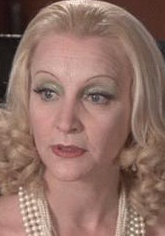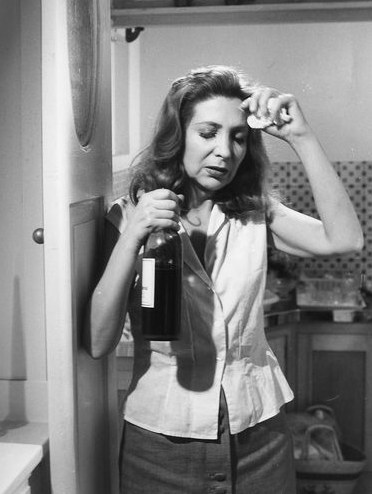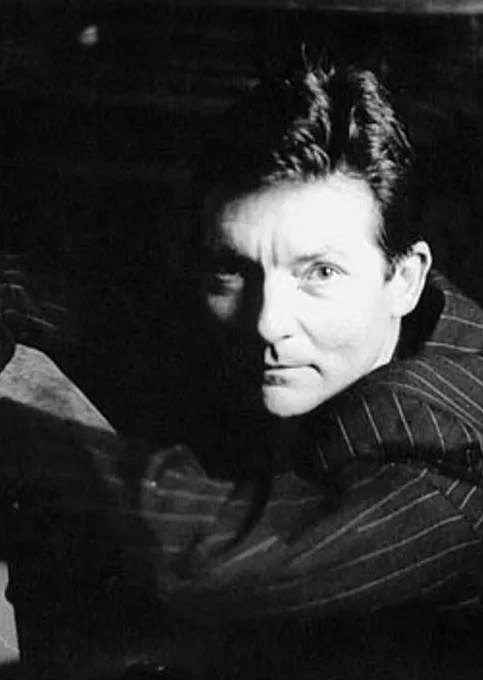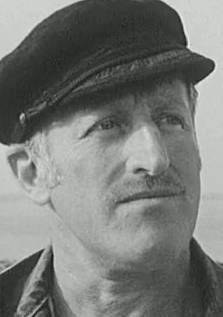女人,女人 Femmes, femmes(1974)

导演: 保罗·韦基亚利
编剧: 保罗·韦基亚利 Noël Simsolo
主演: 埃莱娜·叙尔热尔 索尼娅·萨维昂热 米歇尔·德拉海耶 让-克劳德·吉盖 马塞尔·加索克 让·波米埃 米歇尔·迪绍苏瓦 Dominique Erlanger Noël Simsolo Huguette Forge Charles Level Claudine Daubisy Pierre Lose Séverine Vincent Claire Versane
制片国家/地区: 法国
上映日期: 1974-11-27(法国)
片长: 115分钟 IMDb: tt0071493 豆瓣评分:0 下载地址:迅雷下载
简介:
- Between alcohol, dreams and depression, two declining actresses play out the comedy of everyday life in a flat, under the gaze of stars of yesteryear. Theatre and life mingle to the point of madness.
演员:
影评:

A double-bill from Paul Vecchiali (1930-2023), the openly gay French auteur/author whose name may still be lumped in obscurity even he has left the world an appreciable body of work that spanning six decades. THE STRANGLER and WOMEN WOMEN are his third and fourth features, the former introduces a left-field stance on a female-icing strangler in the person of a baby-faced Jacques Perrin (It is unconceivable for cinephiles that our beloved Salvatore in Giuseppe Tornatore’s CINEMA PARADISO would embody an amoral murderer!), while the latter is a black-and-white folie à deux between two aging actresses Hélène and Sonia (Surgère and Saviange), who navigate their brut-soused existence with an outrageous candidness.
In THE STRANGLER, Perrin's Émile disinterestedly disposes of women whom he deems sad or unhappy with a white scarf (copying a similar incident he witnesses when he was a child). Both Anna (Simonet), a young journalist, and Inspector Simon Dangret (Guiomar, basking in a natural confidence that often eludes him in other works) are roused by Émile's modus operandi, puzzled by his motive (there is no libido involved), and try to seek him out. There is even a petty purloiner named "the Jackal" (Barge) surreptitiously shadowing Émile and snatching some loot in the wake of his crimes. However, contrary to its thrills-and-chills premises, the fate of the quartet will get twisted up in the inspector’s apartment with a particularly Gallic torpidity. A pocket knife comes handy to settle the score as if it were a play group, which makes the consequential comedown hard to dispel.
Émile's Angel of Death actions could be reckoned as an act of mercy killing, to put his victims out of their misery, who are enfolded in an aimless resignation and despondence towards futurity. It is worth noting that his victims are exclusively women who have passed their primes, and most of whom choose not resisting from the unsolicited coup de grâce. Only the prostitute Claire (Courcel) who puts on a good fight and ergo survives Émile’s murderous attempt. To my lights, using the trope of a strangler is just a means to an end for Vecchiali, who endeavors to jolt audience out of the deadening malaise and desensitization caused by the ubiquitous violence and amorality plaguing the modern society (evidenced by the bilious green-tinted, purgatorial montage that contrasts the film’s eye-pleasing colorways).

In WOMEN WOMEN, two over-the-hill actresses (both Surgère and Saviange appear in THE STRANGLER as victims of the scarf, but here they are two spry and emancipated maenads, living their truth to the fullest!) Hélène and Sonia lead a symbiotic life without the spear side (men are merely passers-by), residing in an apartment overlooking the Montparnasse cemetery, occasionally accompanied by birdsong. While Hélène’s acting career has already given up the ghost, Sonia still goes about her business with much gusto and élan, even if she often scrapes the bottom of the barrel.
Compulsively hitting the bottles (a glass of bubbly is always within her reach), Hélène works as a maid for the neighbor Ferdinand (Simsolo, also the film’s co-scenarist) and cannot be arsed to get out of the apartment building (the film is mostly shot indoors, the only time when Hélène and Sonia perambulate on the street, they are there for solicitation). Incorporating absurdity into the plot and often, apropos of nothing, characters bursting into singing and enactment, WOMEN WOMEN could be envisioned as a sparser, less bouncier version of Rivette's CELINE AND JULIE GO BOATING (1974), what happens when its two protagonists mellow into their 40s, when the sparks are gone and life turns drably monochromatic.
Graced by snapshots of quondam celluloid divas (both from Hollywood and French cinema), WOMEN WOMEN offers a nostalgic close look on the stage-struck vanity and the subsistence of being a star manqué. Tippling becomes a low-hanging consolation (pretty soon, it is Sonia’s turn to grip the champagne glass), but dipsomania and delirium tremens are dead serious consequences, if you believe the doctor’s words (a self-conscious Delahaye with a ghastly combover) or it is Alcoholic Anonymous coming to your rescue, if you are willing to trust a reformed alcoholic (Courseaux, an eager beaver). Still, there is no reason to be maudlin, Vecchiali jocosely pokes fun at Hélène and Sonia’s independence and alterity. While the film feels protracted in its whimsies and ludic wiles, it also points up Vecchiali’s rapport with unconventional, mature women (not pretty babes). Even lavished in a windfall that chases away all their financial troubles, Hélène and Sonia are prone to theatricals to unleash their inner torment, freeze-framed in the final shot that is an entrapped soul howling for its raison d’être.
As a mere novice to Vecchiali’s oeuvre, Yours Truly’s first impression is that he inherits Nouvelle Vague’s spontaneity (THE STRANGLER really feels free-wheeling out in the open), the new-found freedom of the camera, but hews to a less sensational métier to examine those who are often overlooked and stigmatized, often betraying his own narcissistic streak and queer-coded sentiments. That’s why THE STRANGLER is poles away from a lurid giallo, and WOMEN WOMEN is anything but an exploitive psycho-biddy, for which we shall all be appreciatively thankful.
referential entries: Jacques Rivette's CELINE AND JULIE GO BOATING (1974, 9.2/10), WOMEN DUELLING (1976, 7.3/10); Richard Fleischer's THE BOSTON STRANGLER (1968, 7.3/10); Vera Chytilová’s DAISIES (1966, 7.6/10).
English Title: The Strangler
Original Title:
Year: L'étrangleur
Country: France
Language: French
Genre: Crime, Drama
Director/Screenwriter: Paul Vecchiali
Music: Roland Vincent
Cinematography: Georges Strouvé
Editor: Françoise Merville
Cast:
Jacques Perrin
Julien Guiomar
Eva Simonet
Paul Barge
Nicole Courcel
Hélène Surgère
Jean-Pierre Miquel
Jacqueline Danno
Katja Cavagnac
Sonia Saviange
Jean-Michel Dhermay
Marcel Gassouk
Muni
Andrée Tainsy
Jean-Claude Guiguet
Liza Braconnier
Rating: 7.1/10
English Title: Women Women
Original Title: Femmes femmes
Year: 1974
Country: France
Language: French
Genre: Comedy, Drama
Director/Editor: Paul Vecchiali
Screenwriters: Noël Simsolo, Paul Vecchiali
Music: Roland Vincent
Cinematography: Georges Strouvé
Cast:
Hélène Surgère
Sonia Saviange
Noël Simsolo
Michel Delahaye
Huguette Forge
Jean Pommier
Charles Level
Jean-Claude Guiguet
Marcel Gassouk
Michel Duchaussoy
Claudine Daubisy
Henry Courseaux
Liza Braconnier
Rating: 6.8/10





